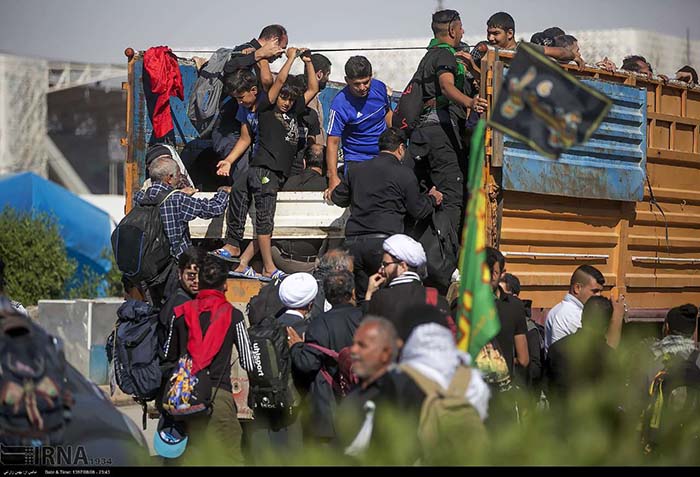[custom_adv]
According to Ali Mamouri writing in Al-Monitor, the pilgrimage became “a show of force against those hostile to the rise of the Shia in the region”. After the fall of Mosul to the ISIL “and the subsequent massacres of Shia soldiers and civilians”, the gathering took a political form for the first time for the Shia, who use the mourning rituals as a way to condemn injustice and express their social power.

